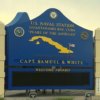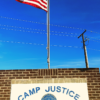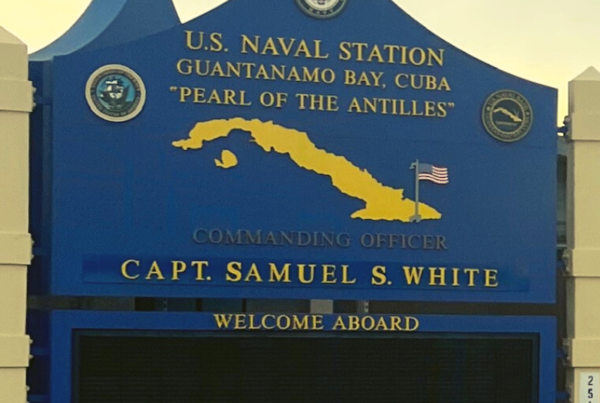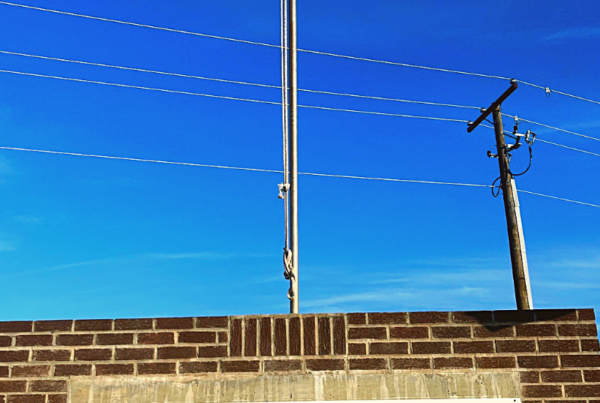Anthony Stephen Malone traversed the dust-swept streets of Kabul, Afghanistan for three months helping to evacuate some of the country’s most vulnerable people during the chaos of last year’s collapse back into Taliban rule. In conversations over soup and soft bread, Anthony discussed the intricacies of these evacuations, the confusion over the U.S. pullout, and the messy media perceptions that failed to accurately depict a fragile country spiraling into economic collapse.
I hung on their every word. Anthony understood every aspect of the country’s history, all the dynamics, and all the nooks and crannies of the war-ravaged land. He certainly knows more than any Ph.D.-wielding “expert” or government bureaucrat.
Just days after I departed Kabul on a frosty December morning, I received a text message that Anthony had been detained in what seemed to be some sort of misunderstanding outside what used to be the British Embassy. The news left me raw.
In the weeks that followed, the Taliban denied any knowledge of the two British nationals in their custody. There was no proof-of-life, no media attention, no charges, and no word on their precise location or state of mental and physical health.
Christmas came and went, the grey winter morphed into a blinding bright spring and then the summer heat struck. I thought of my friends often, prayed for them, and bombarded other mutual associates with questions. Little news spilled out of the Taliban stronghold.
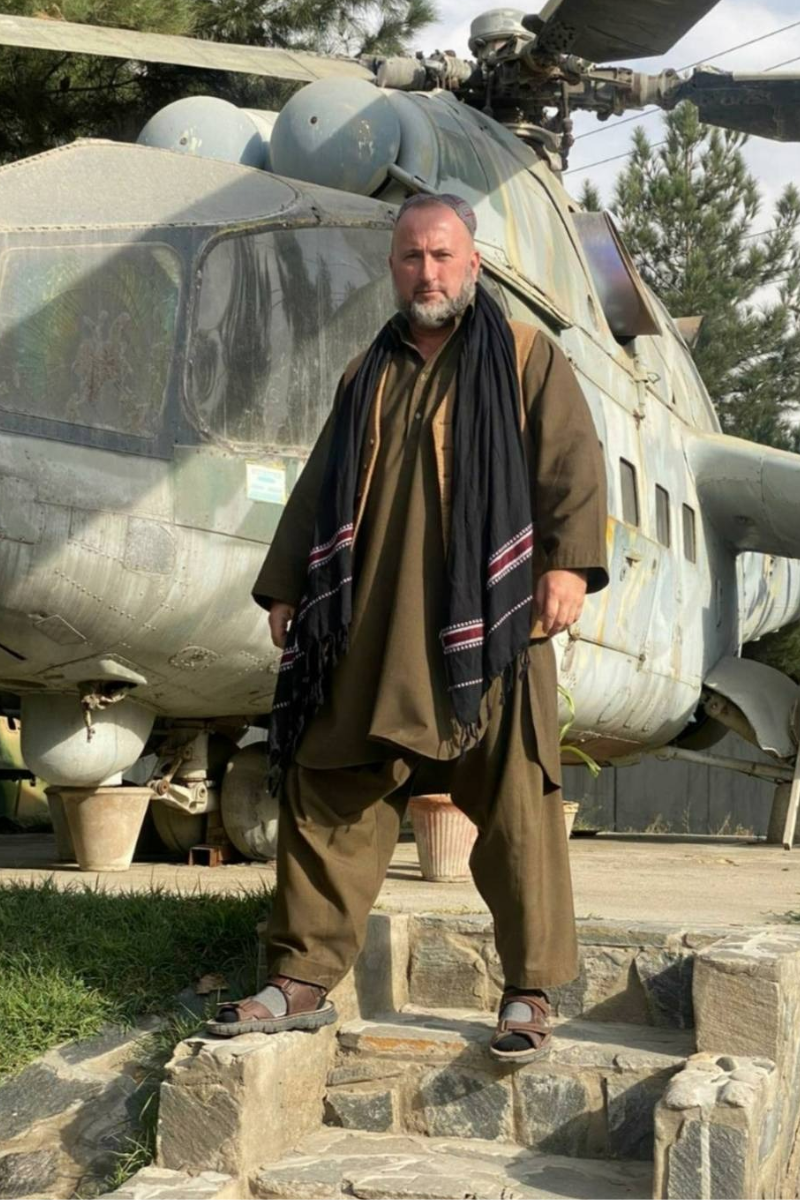
Eventually, the pieces of the puzzle came together. Anthony had been photographing a potential house to rent when curious Talibs emerged and insisted – erroneously – that his permission letters were fraudulent.
“We told them we would answer any questions they had, and we said ‘no problem’ when we were told to go down to National Directorate of Security (NDS) headquarters. We thought it would take a couple of hours,” Anthony recalls of his and his friend’s encounter.
The war Veteran was not only detained, but whipped with a heavy rubber hose and tortured by what he calls a “rogue” element, or “bad apples,” led by a Talib named Ahmad. Anthony was met with a menacing military boot to the ribs.
“I got kicked in the ribs repeatedly, six fractures, which was a really stupid thing for them to do because I ended up getting a kidney infection from bruised kidneys,” Anthony continues. “Ahmad just wanted to do it because I have a British passport.”
Ahmad, he tells me, had a run-in with British troops at some point in the elongated War on Terror, and never forgave the foreigners for joining the invasion. Consequently, Anthony was handcuffed and strapped into stress positions until his nerve endings pinched and his teeth snapped. On some days he was doused with frozen water while bashed between the shoulder blades with a wooden slat.
That was only the beginning of his nightmare.
Indeed, Anthony’s military and intelligence files are thick. In addition to his two decades in and out of Afghanistan, his resume boasts positions ranging from special advisor to the U.S. and British governments, and major news networks, to running rat lines and covert operations in and out of hot zones from Somalia, Singapore, and Syria to Iraq, West Africa, Lebanon, and Colombia.
Beyond the beatings and injuries, Anthony claims he was kept in an underground interrogation cell for 23.5 hours per day inside the NDS intelligence wing and deprived of sunlight for most of the six-month stay.
The low-light cell measured three by three meters, and Anthony was held in solitary confinement for more than 70 days.
In January, he spent his 50th birthday submerged in that cell below the earth. Afghanistan’s living standards seemed to have collapsed on a scale virtually never seen outside wartime. The only working toilet was upstairs; it took months to get a functional shower.
“(The cell) was Baltic at first, but they put little electric heaters in all the cells halfway through winter,” Anthony says.
Nevertheless, every solitary confinement survivor I talk to always says that there is one saving grace, one defining trait that stops the sufferer from descending into a moral morass. For Anthony, that came in the form of a dusty pile of “Harry Potter” books – the entire series, in fact – left behind by a westerner that occupied the cell before him. (Clearly, the Taliban overlords had no clue of its satanic, sorcery themes.)
It wasn’t Anthony’s first protracted stay behind bars in the nation he says is like his second home.
During the tenure of former President Karzai, the Veteran spent two-and-a-half years in Kabul’s infamous Pul-e-Chakri prison, privy to terrorist operations carried out inside the gloomy confines. Anthony was locked up after he refused to cow to corruption and pay the judge a bribe, according to him, and then it was extended for years as a result of diplomatic politics and uncertainty about whether he had “flipped” during his imprisonment.
The 2021-2022 apprehension, however, was a much tougher pill for Anthony to swallow. That was the result of the countless beatings, mind games and confusion that almost sent the stoic former military man over the edge.
Still, when it comes to the Taliban – or the frustratingly contradictory, bloody, and beautiful country as a whole – it is the hospitality that remains at the core of the former insurgency’s experience.
“The food probably wouldn’t be palatable to a lot of guys who haven’t lived in Afghanistan; other Brits might find it rough,” Anthony observes with a jovial laugh. “Mostly rice and beans and the odd potato in soup. But that’s what we got used to across most of the country over the years, entering any ordinary Afghan home.”
Our conversation turns back to corruption, a dominant tenant of the U.S.-backed government that we both believe led to the deterioration of western efforts to reform the country through two decades of war. In the case of the British detainees, Anthony surmises it mostly came down to Ahmad’s desire to follow the course of shaking down prisoners to pad his own pockets.
“There were a lot of people being pulled in by Ahmad, and he was charging them to get out, using them like his own ATM,” Anthony says.
He notes that some families of the British hostages were contacted about paying a ransom, typically between $100,000 to $200,000 per person. Still, Anthony insists that no money was exchanged to secure the Brits’ release.
Moreover, Anthony was never charged with a crime. To indict him would have forced them to face a court of law, and in Anthony’s purview, that was the last thing the Talibs wanted, as, without any substantial evidence, he would have most likely walked free.
And then, in late June, on a suffocating summer morning 190 days after disappearing into the void, the glowing words that Anthony was being set free filled my inbox. But the trail to freedom was a feeble one.
What struck the war Veteran the most was the depth of the fissures between all wings of the Taliban – a group filled with differing objectives and allegiances. At one point, Anthony remembers, different delegations from different high-ranking units came to find out what was going on, confused over why an issue that should have been resolved within six hours took six months to resolve.
“That is the real problem now. Even in the intelligence building, it’s a different tribal loyalty on every floor. It is splintered beyond belief,” Anthony points out. “We couldn’t even get our heads around it, the people at the top don’t talk to the people at the middle, and there is no cohesion.”
In the end, Anthony believes it was the top echelons of the Haqqani Network – a U.S. designated terrorist organization widely deemed the most brutal faction of the Taliban – who secured the two Brit’s release.
Just weeks after returning to his sleepy British home to a relieved family, Anthony is already plotting a return to the Taliban’s lair.
“I’m told by the senior people I’m okay and welcome to come back, and ended with a handshake,” he tells me with a light-hearted shrug. “I’m not pro-Taliban, but I am pro-Afghanistan. The Taliban needs a lot of help, and Afghanistan needs a Taliban that isn’t fighting internally to this degree. No one really knows who is running the place.”
Life in the country shouldn’t be taken as business-as-usual. Afghans are dying of malnourishment and hunger every single day. Women are banished to dark basements and ordered only to emerge behind the layers of a sea blue burqa. The country no longer makes headlines as the lives of those left behind fade into the passage of time.
Anthony reminds me that the Taliban are the legitimate government in Afghanistan – regardless of which way anyone wants to slice it – and there are still thousands of Western nationals who need help getting out.
“I’m not going to brand all of them for what happened to me. I am just hoping that the bad apples can be removed,” he adds with defiance. “I would love to see Afghanistan go through this transitional period with no violence, no fighting.”


